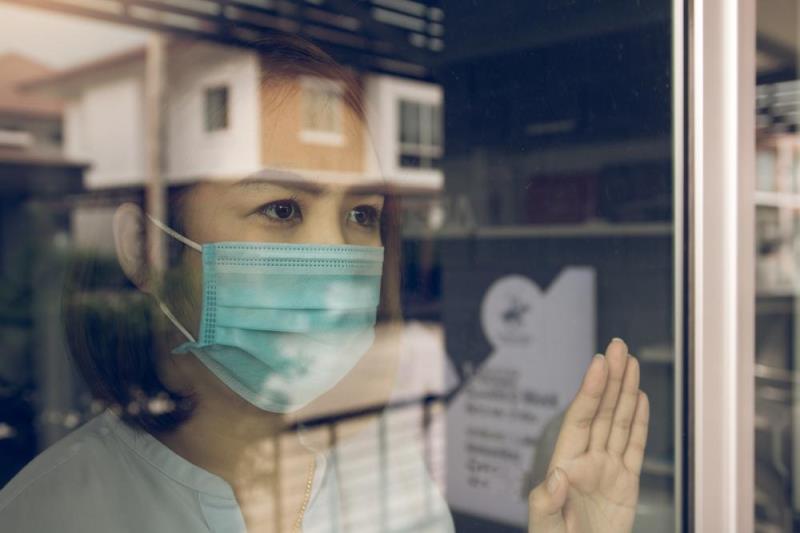Anxiety and depressive symptoms common in hospitalized COVID-19 patients





Anxiety and depressive symptoms were found to be common among hospitalized patients with coronavirus disease 2019 (COVID-19), results of a cross-sectional study in Wuhan, China, have shown.
“The study’s findings may support the development of interventions to reduce the adverse impact on mental health as a result of the COVID-19 pandemic on patients in Fangcang shelter hospitals in the future,” concluded the researchers. [PLoS One 2020, doi: 10.1371/journal.pone.0238416]
In the study, data were collected from 307 hospitalized patients with COVID-19 admitted to Fangcang shelter hospitals in Hubei Province, China, through a self-administered online questionnaire. The patients were asked about their sociodemographic background, physical symptoms and coexisting illnesses and comorbidities, as well as and symptoms of anxiety, depression and quality of sleep, measured by the revised versions of Self-Rating Anxiety Scale (SAS), Self-Rating Depression Scale (SDS), and Pittsburgh Sleep Quality Index (PSQI) adapted for and validated in Chinese patients.
Results showed that 26.4 percent, 24.4 percent and 17.9 percent of patients had physical symptoms of coughing, shortness of breath and soreness or discomfort in the throat, respectively.
Comorbidities of hypertension, chronic bronchitis and chronic obstructive pulmonary disease (COPD) were present in 16.0 percent, 13.0 percent and 4.6 percent of the patients, respectively.
The overall prevalence of poor sleep quality, anxiety and depression symptoms was 84.7 percent, 18.6 percent and 13.4 percent, respectively.
Poor sleep quality and presence of ≥2 current physical symptoms were associated with a 3.655-fold (p=0.038) and 3.504-fold (p<0.01) increase in risk of anxiety symptoms.
Female sex, having a family member with a confirmed COVID-19 diagnosis, and presence of ≥2 current physical symptoms were associated with a 5.878-fold (p<0.001), 2.81-fold (p=0.006) and 4.145-fold (p<0.001) increase in risk of depressive symptoms.
Fangcang shelter hospitals, a novel public health measure with the aim to control the spread of COVID-19 infections, are large temporary hospitals built by converting public venues into healthcare facilities. These hospitals admitted nonsevere COVID-19 patients while providing medical treatment and social support.
Fangcang shelter hospitals had been critical to the rapid containment of COVID-19 in China, relieving some of the enormous pressure on the healthcare system and setting an example as an effective intervention for other countries. [Lancet Public Health 2020, doi: 10.1016/S2468-2667(20)30073-6]